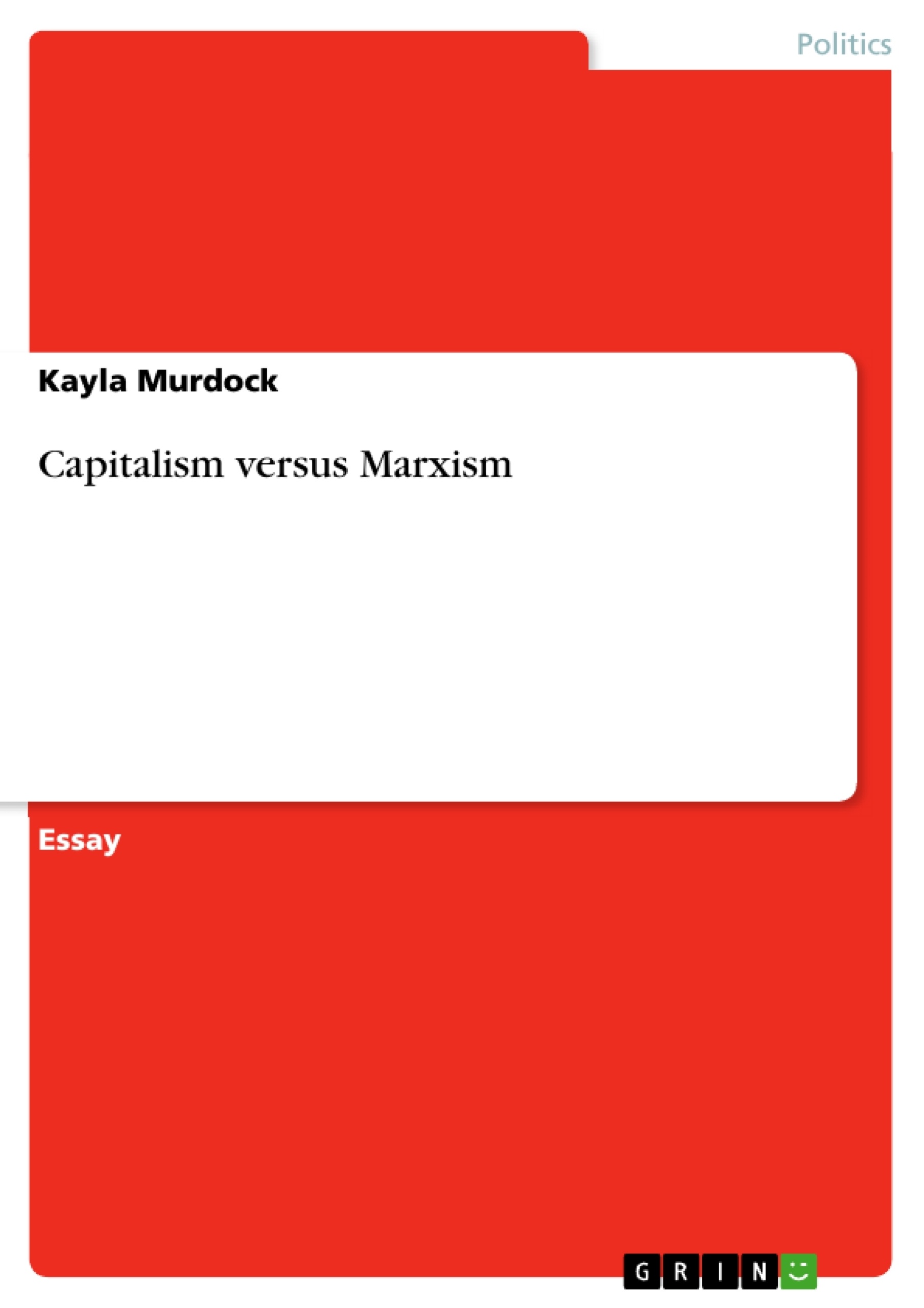The following essay is a seven page paper discussing Capitalism versus Marxism. It is a well written essay with eight scholarly references.
Table of Contents
- Capitalism VS. Marxism
- Marxism
- Marxist Ethics as a Modern Tool
- The Crisis of Overproduction
Objectives and Key Themes
This document aims to explore and contrast the fundamental principles and implications of capitalism and Marxism. It examines the historical development and philosophical underpinnings of both systems, highlighting their key differences and potential future impact on society.
- The historical evolution and development of capitalism and Marxism
- The core principles and concepts of both systems
- The potential societal and economic impacts of each system
- The relationship between capitalism, Marxism, and the changing global landscape
- The contemporary relevance and potential future of Marxist ideas in a globalized world
Chapter Summaries
The first chapter introduces the concepts of capitalism and Marxism as contrasting economic and political systems. It discusses the historical emergence of capitalism, highlighting Adam Smith's contributions and the role of the Industrial Revolution in shaping its development. The chapter also introduces the concept of the Communist Manifesto and its prediction of capitalism's global spread, exploring the historical context and the ongoing relevance of this prediction.
The second chapter delves into the core principles of Marxism as formulated by Karl Marx and Frederick Engels. It discusses the historical context of Marxism's development in 19th century England, emphasizing the social and economic changes brought about by industrialization. The chapter also presents three central concepts of Marxism: historic materialism, forces of production, and relations of production.
The third chapter examines the enduring relevance and potential future of Marxist ideas in the modern world. It challenges common criticisms of Marxism, arguing that its core principles remain relevant in understanding contemporary societal issues like inequality, resource distribution, and the globalized economy. The chapter provides examples of how Marxist analysis can illuminate key challenges facing the world today, particularly the tension between profit-driven production and social needs.
The fourth chapter explores the concept of overproduction within capitalism. It argues that the free market's inherent tendency to produce more than can be consumed at acceptable profit margins leads to a crisis of overproduction. The chapter discusses how this phenomenon creates a contradiction between the potential to meet societal needs and the limitations imposed by profit-driven capitalism.
Keywords
This text focuses on key concepts like capitalism, Marxism, historical materialism, forces of production, relations of production, the Communist Manifesto, the Industrial Revolution, class struggle, globalized economy, and the crisis of overproduction.
Frequently Asked Questions
What are the core differences between Capitalism and Marxism?
Capitalism is based on private ownership and market competition, while Marxism focuses on historical materialism, class struggle, and the eventual collective ownership of the means of production.
What is the "Crisis of Overproduction"?
It is a Marxist concept arguing that capitalism's drive for profit leads to producing more goods than the market can consume at profitable prices, causing economic instability.
How did the Industrial Revolution influence Marxist thought?
The social and economic changes brought by 19th-century industrialization in England provided the context for Marx and Engels to analyze class relations and labor exploitation.
Are Marxist ideas still relevant in a globalized world?
The essay argues that Marxist analysis remains useful for understanding modern issues like wealth inequality, resource distribution, and the tensions in the global economy.
What role did Adam Smith play in the development of Capitalism?
Adam Smith's contributions provided the early theoretical framework for free-market capitalism, emphasizing the "invisible hand" and division of labor.
- Citation du texte
- Kayla Murdock (Auteur), 2009, Capitalism versus Marxism, Munich, GRIN Verlag, https://www.grin.com/document/150605



